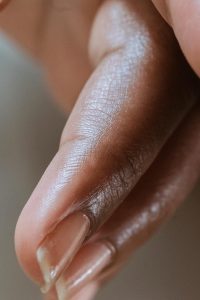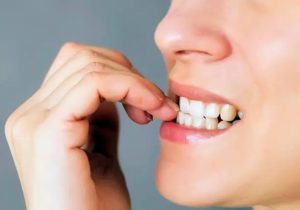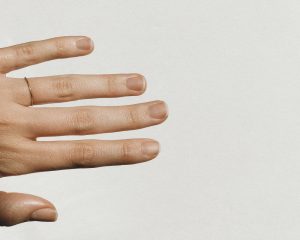You found our list of tips for How to Stop Biting Nails!
If you’ve ever wondered how to stop biting nails in a gentle, sustainable way, you’re not alone. This common habit can feel impossible to break—but with a few mindful strategies and non-toxic products, it’s entirely possible to restore your nails and reclaim a sense of calm. Whether you’re taking subway selfies or sipping matcha at your favorite SoHo café, your hands deserve to feel as polished as the rest of you.
These tips for nail biting is similar to Why Do My Nails Grow So Fast?
This article includes:
- how to stop biting nails
- nail biting
- bitter nail polish
- nail biting treatment
- nail biting causes
7 Tips to Help You Stop Biting Your Nails
Here are six intentional, holistic approaches to help you stop nail biting—designed with clean beauty lovers, city dwellers, and wellness seekers in mind.
1. Keep Your Nails Polished and Pampered
There’s something transformative about a fresh manicure—especially when it’s done with intention. When nails are neatly trimmed and coated in a beautiful, toxin-free polish, they become something to admire rather than chew. Choose shades that feel expressive, whether it’s a classic blush pink or a rich NYC-inspired navy. Bonus: visiting a serene nail studio, like sundays studio, even once a month, helps reinforce the idea that your hands are worth caring for.
Check out sundays studio.
2. Keep Your Nails Short and Neatly Trimmed
When your nails are short, there’s simply less to bite, which reduces both the temptation and the tactile satisfaction that often reinforces the habit. Short nails are also less likely to develop snags or rough edges, which are common triggers for biting. Plus, trimmed nails tend to feel smoother and cleaner, removing that subconscious urge to “fix” or nibble at imperfections.
Incorporating a regular nail-trimming ritual—paired with gentle filing and a nourishing cuticle oil—can help you maintain that clean, polished look, making biting feel less necessary and less rewarding. It’s a small but powerful shift that supports healthier hands and habits.
Check out the sundays manicure kit.
3. Use Aromatherapy or Essential Oils to Interrupt the Habit
Nail biting often happens in moments of stress, anxiety or distraction. Introducing a sensory ritual can be a game changer. Apply a roll-on essential oil blend with calming scents like lavender, frankincense, or bergamot to your wrists or cuticles. Not only does this soothe your nervous system, but it also replaces the habitual hand-to-mouth motion with a mindful pause. Try keeping a vial in your purse or on your desk—small shifts can have lasting impact. Pro tip: citrus aurantium L. more commonly known as bitter orange, is highly recommended for reducing anxiety.
Learn more about the benefits of aromatherapy.
4. Nourish Dry Cuticles with Botanical Oils
Sometimes we bite our nails because our cuticles feel rough or dry. A luxurious cuticle oil, infused with natural botanicals like jojoba, rosehip, or evening primrose, helps soften skin and minimize hangnails—the small but mighty triggers of nail biting. Apply a few drops each evening before bed or while riding on the subway. This tiny ritual becomes an act of self-respect, grounding you in the present moment.
Check out Burt’s Bees Lemon Butter Cuticle Cream.
5. Distract Your Hands with Stylish Fidget Accessories
Idle hands often lead to anxious habits. Swap the unconscious gesture of nail biting for a more constructive and fashion-forward alternative. Try a tactile ring that spins, a smooth worry stone tucked into your coat pocket, or even a discreet beaded bracelet. These accessories allow your hands to stay busy—without harm—and can add a bit of personality to your everyday look.
Check out this mint&lily Adjustable Beaded Fidget Ring.
6. Journal or Track Your Habit with a Wellness App
Breaking a habit begins with understanding it. Take note of when and why you tend to bite your nails. Is it during Zoom calls? While watching TV? Once you spot the patterns, you can interrupt them. Consider using a digital wellness tracker, or keep a minimalist notebook in your bag to jot down your triggers. Pairing awareness with self-compassion creates the ideal foundation for change.
Check out the NailKeeper App.
Final Thoughts
Learning how to stop biting nails doesn’t require shame or perfection. Instead, it’s about tuning into your body’s cues and offering gentle alternatives—whether that’s a fresh coat of clean polish, a calming ritual, or a stylish little distraction. With a bit of intention (and maybe some essential oils), you’ll be well on your way to healthy, beautiful nails that feel as good as they look. You deserve nothing less.
Enjoyed this article? Next, check out How to Prevent Nail Polish Chipping on Weak or Damaged Nails.






